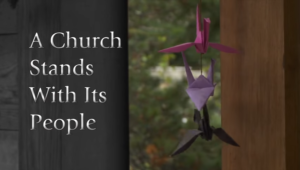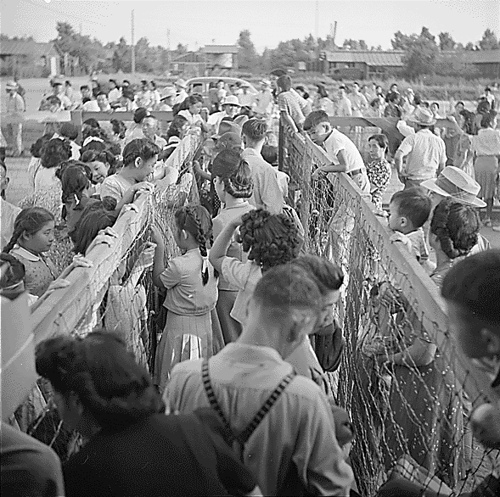As citizens across the nation mark the 75th anniversary of Japan’s attack on Pearl Harbor, American Baptist leaders renewed attention to a lesser-known part of the story they believe offers lessons on racial prejudice still relevant for today.
Two months after the Dec. 7, 1941, bombing attack killed 2,403 Americans and propelled the nation into World War II, President Franklin Delano Roosevelt issued Executive Order 9066 authorizing the internment of American citizens of Japanese ancestry and resident aliens from Japan.
More than 127,000 Japanese immigrants and their American-born children were imprisoned from 1942 to 1945 in West Coast internment camps under suspicion some would be enemy sympathizers.
Baptist missionaries ministered to ethnic Japanese families as they prepared to leave their homes and followed them to incarceration centers to provide spiritual support. Their action was detailed in a 2012 video A Church Stands With Its People by American Baptist Home Mission Societies.
While Americans to this day can recite FDR’s description of Dec. 7 as a “day which will live in infamy,” Baptist leader Susan Gottshall says Feb. 12, 1942 — the day Executive Order 9066 came about — represents a less convenient narrative that “really doesn’t fit with the story we Americans like to tell ourselves about the greatest country on earth.”
Gottshall, associate executive director of communications of American Baptist Home Mission Societies, was among more than 240 participants in the 2016 Minidoka Pilgrimage, a group visit to the former Minidoka Relocation Center in Idaho conducted annually since 2003.
“Memories came fast and furious at the site,” Gotschall described the scene in an article on the ABHMS website. “Pilgrims remembered the numbers assigned to the tarpaper-covered barracks buildings where they lived. They told stories of using wooden crates to create vanities. They spoke of the food in communal dining halls and remembered shower and bathroom facilities with no privacy. All mail, outgoing and incoming, they recalled, was reviewed by War Relocation Authority (WRA) personnel who often blacked out portions of correspondence.”
It was all carried out by a government “of the people, by the people, for the people,” Gottschall said, an ideal at the time “clearly for some people, but not others.”
Gottschall said it is past time to shatter the silence about a chapter in U.S. history that is rarely discussed.
“It is time to tell this story far and wide, so that all Americans know what can happen when fear and hysteria prevail over reason and law,” Gottschall said. “Japanese Americans were imprisoned without trial, without the constitutional protection of due process, in direct violation of the Bill of Rights.”
 “It’s time every U.S. citizen understands what happened,” she said, “because if it happened once, it could happen again.”
“It’s time every U.S. citizen understands what happened,” she said, “because if it happened once, it could happen again.”
American Baptist Home Mission Societies issued a press release Dec. 5 lifting up the other side of the Pearl Harbor story “as a lesson of racial injustice important to remember as well.”
“As the United States honors those who lost their lives in the Pearl Harbor attack and remembers its horrific destruction, ABHMS asks that we take time to remember, as well, that the brutality of war or fear of terrorism must never again be used to justify depriving a people of their basic human dignity and their freedom,” agency officials said in the release.
Previous story:

